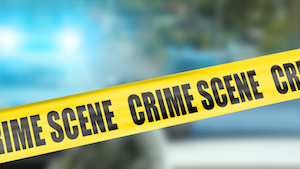The Grim Sleeper serial killer trial in Los Angeles, California experienced another delay this week when attorneys for the defense were blocked from using testimony from a DNA expert witness. According to the presiding judge, the defense team’s DNA expert was not a credible witness and could not contribute his analysis to the high profile serial murder trial.
Grim Sleeper Serial Killer Murder Trial
Lonnie Franklin, Jr. was arrested in 2010 based on forensic DNA evidence linking him to the so-called Grim Sleeper serial killer murders. The Grim Sleeper, named because of an apparent 14-year break between 1988 and 2002, has been positively linked to the murder of 10 African American women in the Los Angeles area and the attempted murder of 1 victim who survived. Franklin was arrested after DNA evidence collected from his son during prosecution for an unrelated crime matched a familial DNA search police investigators used to solve the Grim Sleeper case. Since his 2010 arrest, Franklin’s capital murder trial has experienced a number of delays with attorneys on both sides building forensic cases in preparation.
Defense attorneys for Franklin have focused a portion of their case on linking some of the alleged Grim Sleeper murders to Chester Turner – a serial killer who is already convicted and sitting on California’s Death Row. According to Franklin’s lead attorney Seymour Amster, DNA could connect some of the attacks – one of which resulted in murder – to Turner and not to Franklin. Superior Court Judge Kathleen Kennedy rejected the attempt, however, and ruled the defense’s DNA expert witness was not qualified to testify.
Grim Sleeper Defense Expert Rejected before Trial
Earlier this year in a pre-trial hearing, defense attorneys for alleged Grim Sleeper serial killer Lonnie Franklin, Jr. called DNA expert witness Lawrence Sowers to link forensic evidence found at the scene of murders to men other than Franklin. Although the idea of using a DNA expert witness to use forensic evidence to suggest other perpetrators is valid, Dr. Sowers fell short in his efforts to help Franklin’s defense by admitting to conducting last minute re-calculations after hearing testimony from a separate DNA expert and backtracking on claims he made during testimony.
Dr. Sowers initially reported his DNA analysis found samples from other men – including convicted murder Chester Turner – at “several” of the crime scenes where police investigators gathered evidence which would eventually lead them to Lonnie Franklin, Jr. During his testimony at a pre-trial evidence hearing held this week, however, Sowers backtracked and admitted to recalculating his figures after hearing a different DNA expert witness take the stand. Defense attorney Seymour Amster attempted to postpone the hearing after Sowers began to hedge on his initial DNA analysis, but Judge Kennedy rejected the request in order to give prosecutors a full opportunity to critically examine Dr. Sower’s work and his qualifications as a DNA expert witness.
District attorneys prosecuting Franklin responded to Sowers’s DNA expert testimony by picking apart his calculation and investigation procedures, and asking pointed questions about his education and training which qualified him as an expert. After testimony, Judge Kennedy sided with prosecutors and found Sowers “woefully failed to meet the generally accepted methods of the scientific community in the area of forensic DNA analysis.” After this week’s rejection of the defense’s proposed DNA expert witness, attorneys for Franklin will not be allowed to use forensic expert testimony which directly points to other suspects.
Grim Sleeper Trial to Resume in December
Judge Kennedy postponed the Grim Sleeper murder trial of Lonnie Franklin, Jr. until December 15th, 2015 after almost a year of delays and evidentiary hearings. The trial was scheduled to begin in January of 2015 after nearly five years of preparation, but has experienced multiple postponements during a contentious pre-trial period. Franklin, Jr. has pleaded not guilty to the Grim Sleeper murders, and faces the death penalty if convicted of the killings.













